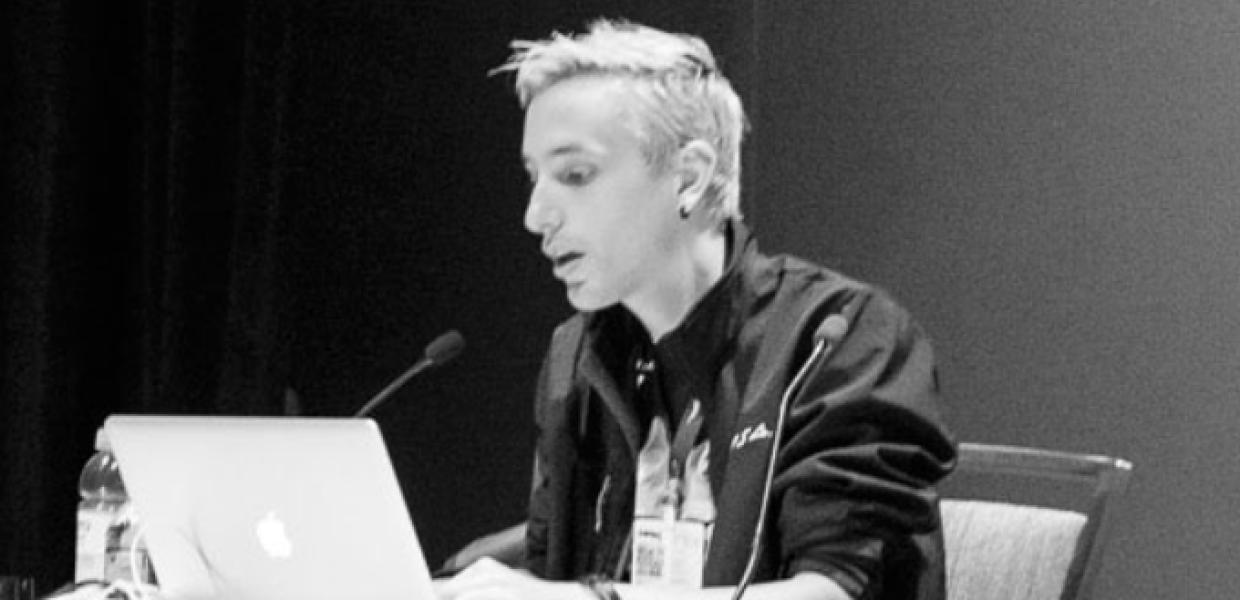Communication doctoral student Alex Leavitt is one of Pacific Standard magazine's "30 Under 30" for 2016.
The annual list brings together thirty of the top thinkers under the age of 30 from across a broad range of disciplines. While their backgrounds, experiences, and areas of expertise are varied, they're all producing vibrant, world-changing work early in their careers.
Every day in March, a new profile will be posted on the Pacific Standard website.
Today, Leavitt is featured for his work on social media and online collaboration--"weird phenomena on the Internet," as he described it to Pacific Standard. Here, he answers a few questions about his research, his inclusion on the "30 Under 30" list, and what he plans to do after graduating this May.
What are your research interests?
My research focuses on social media platforms and online multiplayer games, studying how people interact with each other around collaboration (e.g., working together on creative projects, political action, competitive teamwork, etc.).
Even years before I started the PhD, I had been interested in how networked technologies bring people together and the quirky, weird, and unexpected things that come out of those online interactions. I also like to mention my focus on my mixed research methods, because I combine traditional ethnographic methods with emerging computational social science techniques, like machine learning, natural language processing, and social network analysis.
What did you do before coming to USC and why did you choose to go to grad school?
Out of undergrad, I went straight into academic research. I spent a year at MIT in the Comparative Media Studies department as a researcher looking at how online social networks were impacting the global creative industries. The following year, I worked at Microsoft Research New England, helping danah boyd with her ethnographic research on American teenagers and social media, as well as pursuing my own internet-related research projects. I knew that I wanted to work on similar problems and continue my passion for doing research. Annenberg became a strong opportunity to get reliable sources and support to pursue the kind of research I wanted to do and also be challenged by so many people.
I know your dissertation is about Reddit and news/crowdsourcing. Can you tell me a little more about that? What do you see as your work's potential effects?
I've been studying reddit for close to 5 years now, both from an ethnographic observant standpoint and conducting statistical analyses on public data. Over these years, one of the fascinating practices that has emerged from reddit's communities is how people co-opt the platform for breaking news reporting. News is shared every day, but it's very hard to continually update a story as it progresses. For my dissertation, I've used over 2 billion public messages and conducted over 50 interviews to investigate how people collaborate on collecting and distributing information during developing crises around the world.
It has been interesting to see how people who volunteer hours to aggregate news information talk about their motivations, make decisions about how to coordinate others to help, focus on particular sources over others, depend on the larger reddit network to help verify information and make corrections, etc. etc. All of these behaviors of course are constrained within the design of reddit's platform, so in particular I'm looking at how crowdwork and filtering algorithms impact the kinds of events that become news and what information ultimately gets shared.
What does being on the "30 Under 30" list mean to you?
I'm humbled that Pacific Standard magazine considered me for this year's list. Looking over the other awardees, they embody a strong passion and curiosity for learning about people and the world. When you're in graduate school for a few years, it's hard to ground yourself, because there are so many other people doing the same kind of process but with research on infinitely different topics, and it's inspiring to see how that is reflected in the range of people chosen for the list. I'm glad that I can point to my inclusion in the 30 Under 30 as a marker of progress, that I was given the opportunity to work on problems I cared about and continued to be supported by people I know and institutions I've been a part of.
You're graduating in May. What's next?
I'm going to continue studying social media and online games, of course. My recent interests have begun shifting toward technical design and how that impacts human behavior. I am increasingly interested in how we can design systems to facilitate better collaborations, relationships, and other human connections.
Over the past few years, I expected to continue on an academic track, but given the questionable state of the job market when I began the PhD program, I made it a goal to do an industry internship every summer to get experience working on research within companies. That decision helped lead me to Facebook Research, which I will be joining in May 2016. Facebook is a unique, hybrid environment, because many of the company's researchers have PhDs, and we are encouraged to continue attending academic conferences, contributing to the research community, and publishing public-facing research. So I am looking forward to contributing to a platform that millions of people use while also maintaining connections back to the scientific community.
